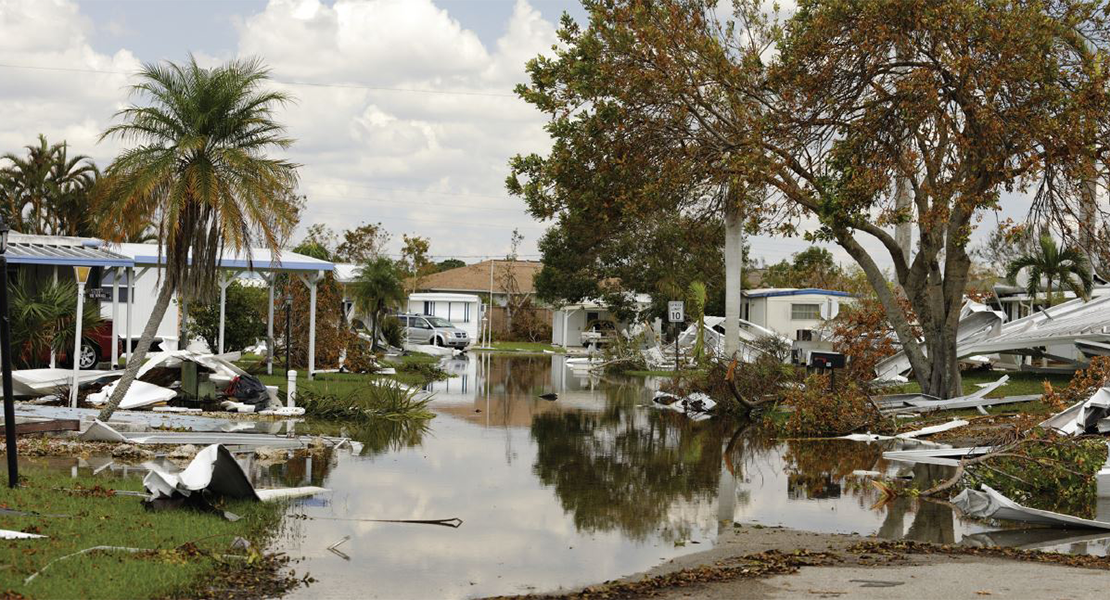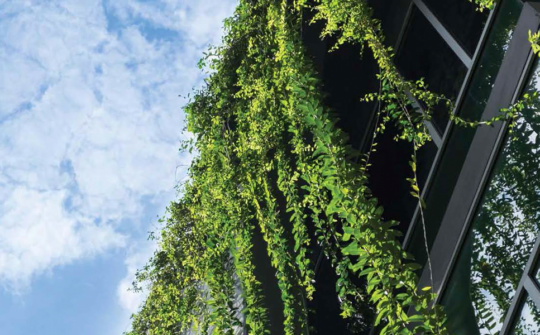Billion-dollar disasters continue to strike. From wildfires to extreme heat and flood events, addressing natural disasters is more critical than ever. And yet the task has become even more daunting given reduced city resources and the vulnerability of many communities to both climate impacts and the cascading effects of the COVID-19 pandemic.
Recognizing these challenges, ULI’s Urban Resilience program continued to help the real estate industry design higher-performing buildings, evolve its real estate investment practices, and rethink its cities in response to the changing climate. The program has captured emerging best practices and profiled industry leadership through research, convenings, technical assistance projects, and partnerships with district councils to help buildings, communities, and cities adapt to conditions now and in the future. Key research topics included climate risk and real estate market assessment, coastal flood preparedness, and wildfire resilience.
The program’s convenings engaged more than 4,500 members and partners during FY21 and made headlines in national and local media, including the Miami Herald, New York Times, Dallas Business Journal, and Thomson Reuters Foundation News.
The program’s flagship convening was the 2020 Resilience Summit. Hosted virtually, the 2020 Resilience Summit brought together more than 225 attendees and exposed the new realities of resilience during a pandemic. The event examined ways in which industry leaders could make more informed decisions to further protect communities and investments from climate hazards. The Urban Resilience program looks forward to hosting the third Resilience Summit, virtually, January 25–27, 2022.
The program’s research helped ULI members better understand the industry impacts of climate change and how their work in real estate and development can prepare and adapt in response.
Wildfires are remarkable in the scale of their destruction and because many occur in or near developed areas. Moreover, climate change is extending the fire season and making the conditions for destructive fires more likely to occur. The Firebreak: Wildfire Resilience Strategies for Real Estate report, released in October 2020, details the implications of wildfires for the real estate industry and explores best practices in building design and land use policy that can reduce the damage caused by wildfires and help set up communities to thrive in the long run. Firebreak was the basis for a webinar that featured key findings from the report and highlighted private- and public-sector experts who were implementing wildfire resilience solutions in their markets.
The Urban Resilience program continued to engage members, support the industry, and collaborate with district councils to champion climate resilience efforts at the local level. In close partnership with ULI Southeast Florida/Caribbean, ULI Urban Resilience produced The Business Case for Resilience in Southeast Florida report. This work coupled a physical risk assessment of future climate threats (sea level rise, higher frequency and intensity of coastal hazards) and mapped the market-level economic impact of a business-as-usual scenario against a proactive investment in resilient infrastructure and building-level strategies. The report identifies opportunities for the real estate industry to achieve a positive return on investment by future-proofing developments and illustrates the shared interest among local governments and the business community to invest in community-wide resilience infrastructure now to build critical infrastructure that protects the region’s economy, people, and property.
Building from these lessons, ULI Urban Resilience—in partnership with Heitman, along with research collaborators Arup and Milliman—leveraged member expertise to better understand the ecosystem of risk associated with climate change at the market level. The Climate Risk and Real Estate: Emerging Practices for Market Assessment report demonstrates that leading investors are developing approaches to better understand climate risk at the city or market scale, rather than focusing primarily on risk at the asset level. Derived from a series of interviews with leading institutional investors and investment managers, the report explores the current state of the real estate industry while considering the emerging impacts of climate risk and best practices for assessing markets for physical risk and resilience.

The Urban Resilience program continued to support the Resilient Land Use Cohort, a technical assistance and learning opportunity for seven district councils and their city partners to enhance climate resilience and social equity in their communities. This year, all the participating councils hosted either a virtual technical assistance panel (vTAP) or a virtual Advisory Services panel (vASP), with some already seeing direct benefits of their efforts.
For example, ULI New York hosted a two-and-a-halfday vTAP that convened several experts to address how Marlboro Houses—a coastal public housing campus damaged by Hurricane Sandy but ineligible for post-Sandy recovery funds—could build resilience to climate hazards by adapting its landscapes, buildings, operations, and finances. The panel found that the New York City Housing Authority (NYCHA) could boost Marlboro Houses’ climate resilience by enhancing landscape green infrastructure, pursuing flood-proofing and net-zero/Passive House retrofits to buildings, and integrating climate considerations into NYCHA’s existing reporting and funding mechanisms. Since the panel, NYCHA has released its Climate Adaptation Plan, which highlighted the Marlboro Houses vTAP specifically and stated that the panel’s recommendations would be integrated into future comprehensive building modernization plans for the site—a shining example of how ULI’s objective, volunteer-led panels can support more resilient homes and communities.
As our communities adapt in the face of a changing climate, the Urban Resilience program will continue to provide resources and industry insights documenting emerging policies and practices for adaptation for the real estate industry.


